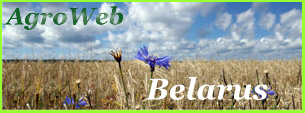New COST Open Call now published! We will be gathering Action proposals by 24 March 2015, the first Collection Date
The new Open Call has now been published. Proposals can be submitted as of February 2015. The first Collection Date will be 24 March 2015.
As of February (the exact date will be communicated in January), you will be able to submit your proposals anytime throughout the year via thenew e-COST online submission tool. The COST Open Call will continue having the spring and autumn Collection Dates, when all submitted proposals are gathered and evaluated.
The first Collection Date will be 24 March 2015 at 12 noon (CET).
The Call is open to ideas in all fields of Science and Technology. Proposals must include researchers from at least five COST Member Countries or Cooperating State.Â
The set of COST Implementation Rules (Key Documents list) have been approved by the Committee of Senior Officials (CSO), the general assembly of the COST Association, and will enter into force on 1 January 2015.
COST has established a new Action Proposal Submission, Evaluation, Selection and Approval procedure. This new procedure, fully Science and Technology-driven, will ensure simple, transparent and competitive proposal evaluation and selection, in line with the bottom-up, open and inclusive principles of COST. Researchers benefit from a one-stage submission based upon a proposal of 15 pages.
The new Proposal Template (in electronic format) as well as the Guidelines for submitting COST Action proposals and evaluation criteria will be available here in January 2015. You can see the Provisional Proposal Template in PDF format here.
Please find a summary here below.
Submission, Evaluation, Selection and Approval procedure: Main features
Solely Science and Technology-driven
- Open to all scientific and technological fields, focusing on excellence
- No prior categorisation in scientific domains
- Equal opportunities to succeed for all scientists and topicsÂ
Simple
- A single submission stage
- A single proposal of up to 15 pages
- More user-friendly IT tools
Transparent
- Straight-forward process
- Independent peer review, based on anonymous evaluation
- Proposal evaluation by internationally renowned experts in the field(s)
A three-step approachÂ
Evaluation
- Based on Science and Technology excellence, impact and implementation criteria
- Each proposal anonymously evaluated by three independent External Experts in the science and technology field(s), subfield(s) and research area(s) indicated by the proposers
- Consensus-oriented
Revision
- Driven by ad-hoc Review Panels reporting to the Scientific Committee, safeguarding the quality of the independent External Expert evaluation outcome and resolving potential differences in their opinions
- Review Panels composed of active scientists nominated by the COST National Coordinators to a pool of experts
- Ad hoc Review Panels created according to the actual needs of the proposals submitted to each Collection Date
Selection
- Driven by the Scientific Committee, identifying, among the list of proposals presented by the Review Panels, those that respond best to COST mission and policies
- High-level experts, one per COST Member Country (and one from Cooperating State)
- Top-ranked proposals to be recommended for approval by the Committee of Senior Officials




